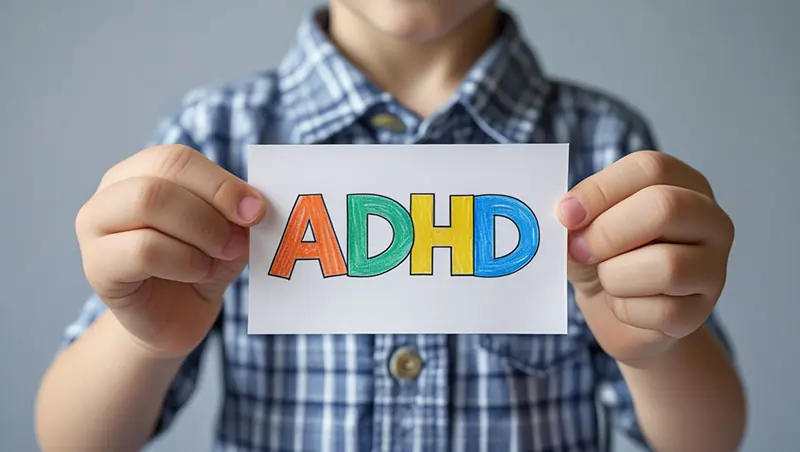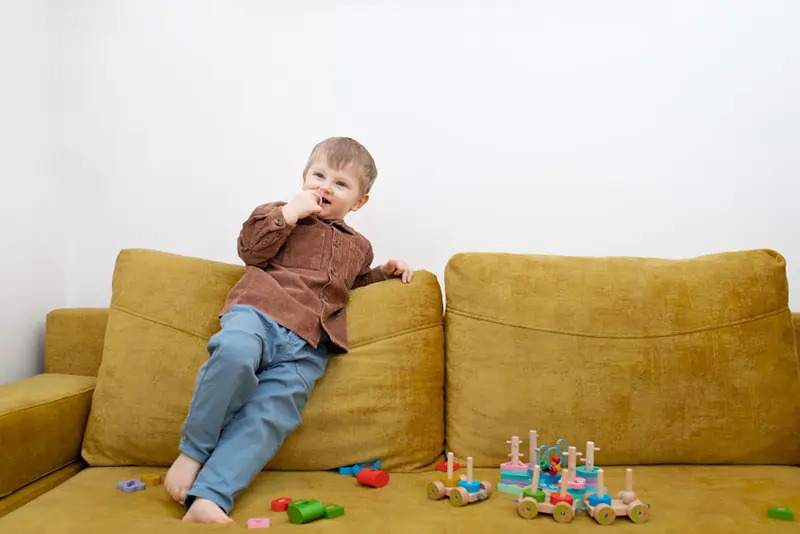Child ADHD Assessment Questionnaire – Identify ADHD Symptoms Early
Attention-Deficit/Hyperactivity Disorder (ADHD) is characterized by ADHD signs of inattention, impulsivity, and hyperactivity that could have an effect on the everyday existence of a kid like his studies and social life. Early finding and accurate assessment are needed in handling ADHD, and also to help children grow socially and intellectually. The child ADHD questionnaire is an immense aid in an early detection of ADHD symptoms.
Here you will know how early ADHD screening is essential and how a questionnaire can help parents and healthcare professionals to grasp symptoms of ADHD.
Role of a Child ADHD Assessment Questionnaire
The child ADHD assessment questionnaire is a screening instrument used to assist parents and caregivers in identifying patterns of behavior that can suggest ADHD. It is not a diagnostic instrument, but it does offer useful information that can be used to inform discussions with healthcare providers. Early identification is crucial in establishing the groundwork for proper interventions so that children get the support they require earlier.
What is an ADHD Assessment Questionnaire?
An ADHD screening questionnaire is a type of assessment instrument that is utilized to determine children’s symptoms and signs of ADHD. It is filled out by parents, teachers, or carers who are familiar with the child and its behavior in different environments (home, school, etc.). The questionnaires contained items assessing different behaviors, for instance, inattentiveness, hyperactivity, and impulsivity.
ADHD parent questionnaire needs parents to rate the frequency of some of the child’s behaviour. These might include a failure to pay attention to details, difficulty in sustaining focus on a task, excessive talking, inability to wait in line for a turn, or interrupting others frequently.
ADHD questionnaires are used as a screening measure to help determine if a child may be showing signs of ADHD or not. Only an official diagnosis or childhood ADHD test can be performed by a licensed health care provider, after taking further information and making assessments.
How the Questionnaire Functions
Child ADHD questionnaires include questions which assist in determining a number of signs of ADHD. Questions aim towards three broad categories:
- Inattention: This includes difficulty in paying attention to details, following instructions, and staying organised. For instance, questions may ask whether the child frequently loses items or becomes easily distracted during tasks. Parents who are uncertain about their child’s behaviors can also explore a free ADHD test online before consulting a professional, as it may provide additional perspective.
- Hyperactivity: This assesses how often the child is overly active, fidgety, or unable to sit still. Questions may be asked about excessive movement, restlessness, or difficulty remaining seated in appropriate situations.
- Impulsivity: Impulsivity is acting without thinking, interrupting others, or making impulsive decisions. The questionnaire can include the question of whether the child blurt out answers or has difficulty waiting for their turn.
The ADHD checklist for children will have behaviours in these three categories and will ask parents to rate the frequency or intensity of each behaviour. It is used to break down ADHD into workable traits and symptoms so that parents and professionals can see clearly which behaviours need to be altered.
Each response in the questionnaire is scored, and this is used to calculate whether the behavior of the child is typical for their age or whether it can be considered suggestive of ADHD. A greater score indicates more behaviors characteristic of ADHD, and by using this, decisions about whether to have a professional evaluation can be made.
Key Advantages of Utilizing the Questionnaire
- Early Detection of ADHD Symptoms: The primary benefit of utilizing the child ADHD assessment questionnaire is the possibility of detecting symptoms early. The sooner the ADHD symptoms are identified, the sooner interventions may begin, and they have the ability to improve a child’s development and quality of life.
- Supporting Professional Diagnosis and Treatment: The questionnaire is not used for diagnosis but provides useful data for clinicians to utilize when carrying out a complete assessment. Data obtained may be used to assist in a diagnosis, enabling the clinician to recommend appropriate interventions, whether the sole intervention will be behavioural treatment or medication alone or both.
- Improved Parental Awareness of a Child’s Behaviour: The ADHD questionnaire can be a helpful tool for parents. It helps them to understand the symptomatic behaviours of ADHD and distinguish them from child behaviour. It also helps parents detect whether their child’s issues are abnormal and if they might be assisted by additional evaluation.
Next Steps After Filling Out the Questionnaire
After the questionnaire is completed, the outcome should be given to a medical practitioner. The outcome can be interpreted by a psychologist or psychiatrist specializing in ADHD or by taking further tests and determining if the child has ADHD or not.
For some families, exploring accommodations such as emotional support animals for ADHD can be beneficial. Emotional support animals may provide comfort and help children manage stress and focus better, especially when combined with professional treatment plans.
If the questionnaire indicates the possibility of ADHD, then a comprehensive professional evaluation should be undertaken. This will include a complete test, which can range from observation of the behaviour, interviewing, to further tests.
Early intervention is key when it comes to children with ADHD. Children with ADHD can achieve academically, socially, and emotionally, with proper assistance. An evaluation guarantees that the children are getting the treatment that they need to become their best.
Conclusion
Early detection of ADHD signs can result in better opportunities for children. Child ADHD assessment questionnaires can prove to be the best tool for parents and caretakers to discover ADHD signs and seek professional expertise. Timely intervention with adequate support can make children with ADHD perform well in every aspect of life.


